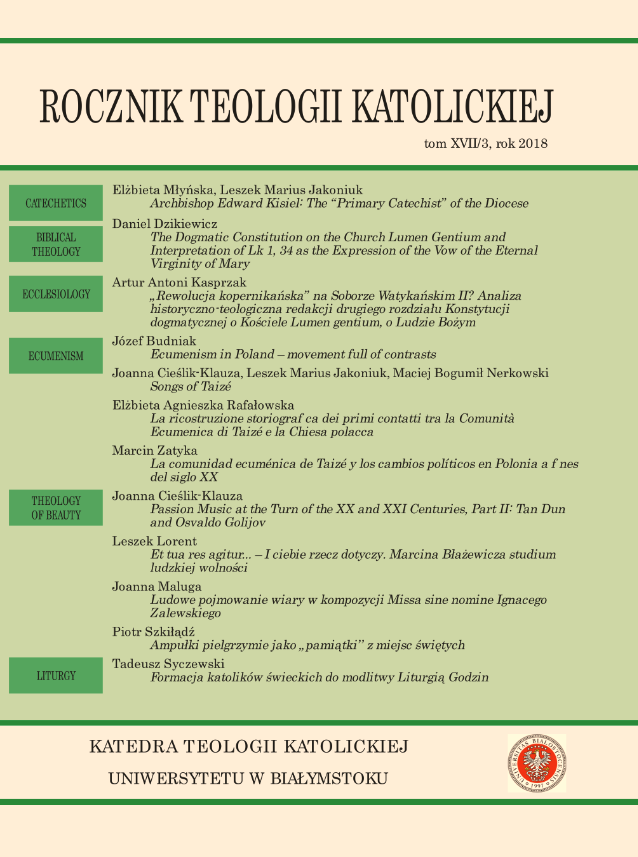La comunidad ecuménica de Taizé y los cambios políticos en Polonia a fines del siglo XX
The Ecumenical Community of Taizé and political changes in Poland at the end of the 20th century
Author(s): Marcin ZatykaSubject(s): Christian Theology and Religion, History, Political history, Theology and Religion, Sociology of Religion
Published by: Wydawnictwo Uniwersytetu w Białymstoku
Keywords: Taizé; ecumenism; Polish People’s Republic; communism; European integration; lay people; political transformation in Poland; John Paul II; ekumenizm;Polska Rzeczpospolita Ludowa; komunizm
Summary/Abstract: The principal aim of this article is to show the relationship between the Ecumenical Community of Taizé and Poles in the time of political changes in Poland at the end of the 20th century. The Youth Council initiated in the 1970s by the community, which was later transformed into the Young Adults European Meetings, created an opportunity to intensify the ecumenical process, but also to enable meetings of thousands of young Europeans from two antagonistic blocs, eastern and western, separated by the Iron Curtain between 1945 and 1989. Recently published documents of the authorities of the Polish People’s Republic (PRL), used by the author in the article, prove hostility of the communist regime towards the Catholic Church in Poland, but also reveal some methods used in this struggle. They also show that shortly before the Youth Council organized in France by the Taizé Community, the communist authorities appointed necessity to conduct actions aimed at weakening the Church in the area of ecumenism and the movements and organizations of lay people, which were slowly developing themselves that time. The Poles living in the communist state were accompanied by the Taizé brothers. Their dedication have been continued also after the collapse of the regime. The intensity of the events organized by the community has changed, as well as a number of participants of meetings in this French village and the Youth Adults European Meetings organized by Taizé. While during the time of communism there were only several dozen or hundred young participants from Poland, after the end of the regime, Poles in the number of tens of thousands dominated these events. During the political transformation Taizé has become one of the main foreign destinations for young Polish Christians, as well as a place of their natural integration with other young adults from the European Union countries. The person who contributed significantly to the inclusion of Poles in the activities of this community, both during the communist period and during the political transformation, was Pope John Paul II form Poland.
Journal: Rocznik Teologii Katolickiej
- Issue Year: 17/2018
- Issue No: 3
- Page Range: 93-106
- Page Count: 14
- Language: Spanish

